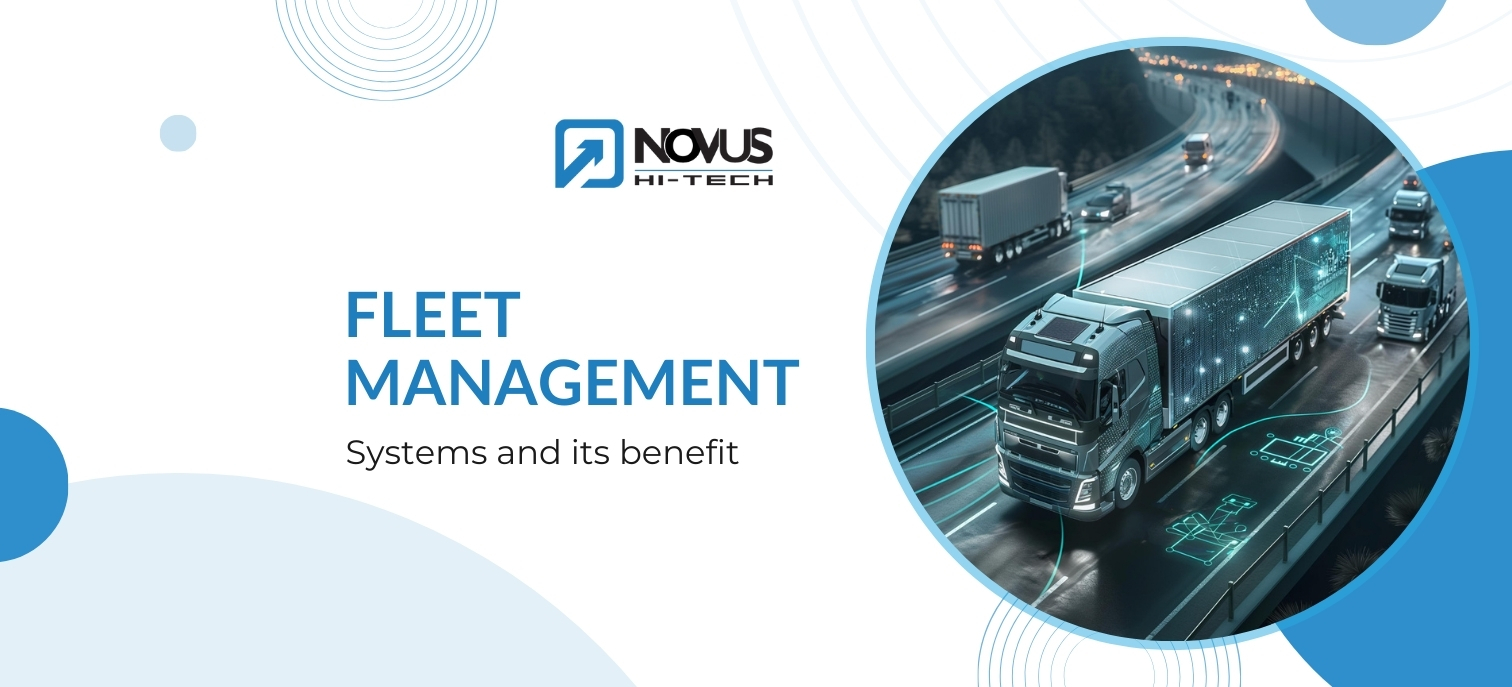In today’s world, the roads are busier than ever, with an increasing number of vehicles navigating our highways and city streets. For businesses that rely on transportation, managing a fleet of vehicles effectively is crucial for success. Fleet management is the key strategy that helps businesses optimize their operations, improve efficiency, and achieve their business goals. In this blog post, we will delve into the world of fleet management, exploring its core functions, benefits, and best practices.
What is Fleet Management?
Fleet management is the process of overseeing and managing a fleet of vehicles, including cars, trucks, vans, and specialized equipment, used for commercial purposes. It involves a range of activities, from vehicle acquisition and maintenance to driver management and route optimization. Fleet management ensures that vehicles are operating efficiently, safely, and cost-effectively to meet the needs of the business.
Evolution of Fleet Management
Fleet management has evolved significantly over the years, transitioning from manual, paper-based systems to modern, technology-driven approaches. Traditionally, fleet management involved manual record-keeping, with managers relying on paperwork to track vehicle maintenance, driver logs, and fuel consumption. However, advances in technology, such as GPS tracking, telematics, and cloud-based software, have revolutionized fleet management, making it more efficient and data-driven.
Revolutionize Your Fleet:
Download our Brochure/E-Book for essential Fleet Management insights.
Key Components of Fleet Management Systems
- GPS Tracking: GPS tracking allows fleet managers to monitor the real-time location of vehicles. This enables them to optimize routes, improve dispatch efficiency, and provide accurate arrival estimates to customers.
- Vehicle Diagnostics: Fleet management systems can monitor vehicle health and detect potential issues before they become major problems. This helps prevent breakdowns and reduce maintenance costs.
- Driver Behavior Monitoring: Technology can track driver behavior, such as speeding, harsh braking, and idling. By identifying risky behaviors, fleet managers can provide targeted training to improve driver safety and reduce accidents.
- Fuel Management: Fleet management systems can monitor fuel consumption and identify fuel-wasting habits, such as excessive idling or speeding. This information allows managers to promote fuel efficiency and reduce costs.
- Fleet Maintenance Management: Software can streamline maintenance schedules, track repair history, and ensure that vehicles are serviced regularly. This helps reduce downtime and extends the lifespan of the fleet.
- Reporting and Analytics: Data analysis provides valuable insights into fleet performance, identifying areas for improvement and supporting informed decision-making. Reports can include fuel usage, maintenance schedules, driver performance, and route efficiency.
Fleet management is a comprehensive process that involves managing various aspects of a fleet of vehicles to ensure efficiency, safety, and cost-effectiveness. By leveraging technology and data-driven approaches, fleet managers can optimize their operations and achieve greater success in their transportation-reliant industries.
Core Functions of Fleet Management
- Vehicle Tracking: One of the primary functions of fleet management is vehicle tracking. Using GPS technology, fleet managers can track the location of each vehicle in real-time. This allows them to monitor routes, improve efficiency, and ensure timely deliveries.
- Driver Monitoring: Fleet management also involves monitoring driver behavior and performance. This includes tracking driving habits, such as speeding or harsh braking, to ensure safety and compliance with regulations.
- Cost Optimization: Another important function of fleet management is cost optimization. By monitoring fuel usage, maintenance schedules, and vehicle performance, fleet managers can identify areas where costs can be reduced and efficiency improved.
Benefits of Fleet Management Systems
Fleet management systems offer a wide range of benefits for businesses that rely on transportation. From increased efficiency to improved safety, these systems can have a significant impact on the bottom line. Here are some key benefits:
1. Increased Efficiency and Productivity: Fleet management systems provide real-time tracking and route optimization, allowing businesses to reduce delivery times and improve resource utilization. By knowing the exact location of each vehicle, managers can assign tasks more effectively and respond quickly to changing circumstances.
2. Reduced Operational Costs: Fleet management systems help reduce operational costs through fuel management, preventative maintenance, and optimized routes. By monitoring fuel consumption and identifying inefficiencies, businesses can save money on fuel. Additionally, by scheduling regular maintenance and addressing issues proactively, businesses can reduce repair costs and minimize downtime.
3. Enhanced Driver Safety: Driver behavior monitoring is a key feature of fleet management systems. By tracking driver behavior, businesses can promote safe driving practices and reduce the risk of accidents. Alerts can be sent to drivers and managers in real-time if unsafe behavior is detected, allowing for immediate intervention.
4. Improved Customer Service: Efficient dispatch and on-time deliveries are crucial for customer satisfaction. Fleet management systems help businesses achieve this by providing real-time tracking and accurate arrival estimates. Customers can be notified of any delays, allowing for better communication and customer service.
5. Streamlined Compliance Management: Fleet management systems help businesses comply with regulations regarding driver hours, vehicle safety, and emissions. By automatically tracking driver hours and ensuring vehicles are well-maintained, businesses can avoid costly fines and penalties.
Fleet management systems offer numerous benefits for businesses looking to optimize their transportation operations. From increased efficiency and productivity to improved safety and customer service, these systems can help businesses stay competitive in today’s fast-paced world.
Choosing the Right Fleet Management System
Selecting the right fleet management system is crucial for businesses looking to optimize their transportation operations. Here is a guide for selecting a system that meets specific business needs:
1. Fleet Size and Type: Consider solutions that are scalable to the number and variety of vehicles managed. Larger fleets may require more advanced features, such as real-time tracking and route optimization, while smaller fleets may only need basic tracking and reporting capabilities.
2. Budget: Explore various options with different feature sets and pricing structures. While some fleet management systems offer a comprehensive suite of features, others may provide a more basic set of functionalities at a lower cost. Determine what features are essential for your business and find a system that fits within your budget.
3. Ease of Use: Choose a system with a user-friendly interface for fleet managers and drivers. A system that is easy to use and navigate will help ensure that it is adopted quickly and used effectively by all stakeholders.
4. Integration Capabilities: Ensure compatibility with existing accounting software or dispatch systems. A fleet management system that can integrate seamlessly with other systems used by your business will help streamline operations and improve efficiency.
5. Scalability: Consider future growth and the potential need for additional features. Choose a system that can grow with your business and adapt to changing needs. Look for a system that offers a range of features and can be easily upgraded as your fleet expands.
Choosing the right fleet management system requires careful consideration of your business’s specific needs and requirements. By evaluating factors such as fleet size, budget, ease of use, integration capabilities, and scalability, you can select a system that will help optimize your transportation operations and drive business success.
The Future of Fleet Management
Fleet management is rapidly evolving, driven by advancements in technology that are reshaping the industry. Here are some emerging trends shaping the future of fleet management:
1. The Rise of Telematics: Telematics, the integration of telecommunications and informatics, is revolutionizing fleet management. Advanced telematics data can provide deeper insights into driver behavior, fuel efficiency, and vehicle health. Real-time tracking and monitoring capabilities enable fleet managers to make informed decisions, optimize routes, and improve overall efficiency.
2. Artificial Intelligence (AI): AI is poised to play a significant role in the future of fleet management. AI-powered systems can analyze vast amounts of data to predict maintenance needs, optimize routes based on real-time traffic data, and provide personalized driver coaching. AI can help fleets operate more efficiently, reduce costs, and improve safety.
3. The Internet of Things (IoT): The IoT, which connects devices and sensors over the internet, is transforming fleet management. Connected vehicles and sensors can generate a wealth of data for comprehensive fleet monitoring and performance analysis. IoT-enabled systems can provide real-time insights into vehicle health, driver behavior, and environmental conditions, enabling fleet managers to optimize operations and enhance safety.
4. Integration with Autonomous Vehicles: While still in the early stages, the integration of fleet management with autonomous vehicles holds great promise for the future. Fleet management systems could potentially manage autonomous vehicle fleets, optimizing routes, coordinating maintenance, and ensuring regulatory compliance. As autonomous vehicle technology advances, fleet management will likely play a crucial role in managing these fleets efficiently and safely.
The future of fleet management is bright, with advancements in telematics, AI, IoT, and autonomous vehicles reshaping the industry. By embracing these emerging technologies, fleet managers can optimize operations, reduce costs, and improve safety, positioning their fleets for success in the evolving transportation landscape.
Conclusion
Fleet management is vital for businesses relying on transportation. A comprehensive system optimizes operations, cuts costs, and enhances safety.
By offering insights into vehicle performance, driver behavior, and efficiency, fleet management empowers informed decision-making and streamlines operations, keeping businesses competitive.
Explore the benefits of implementing a fleet management system to improve efficiency, reduce costs, and boost safety. Contact us today for a free consultation or demo and see how our solution can help you master the road and drive your business forward.
























